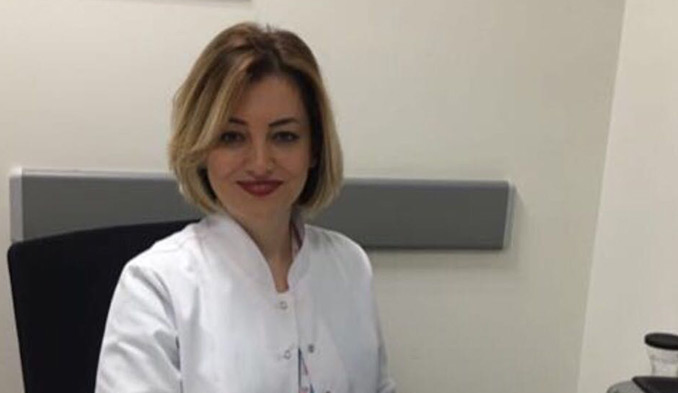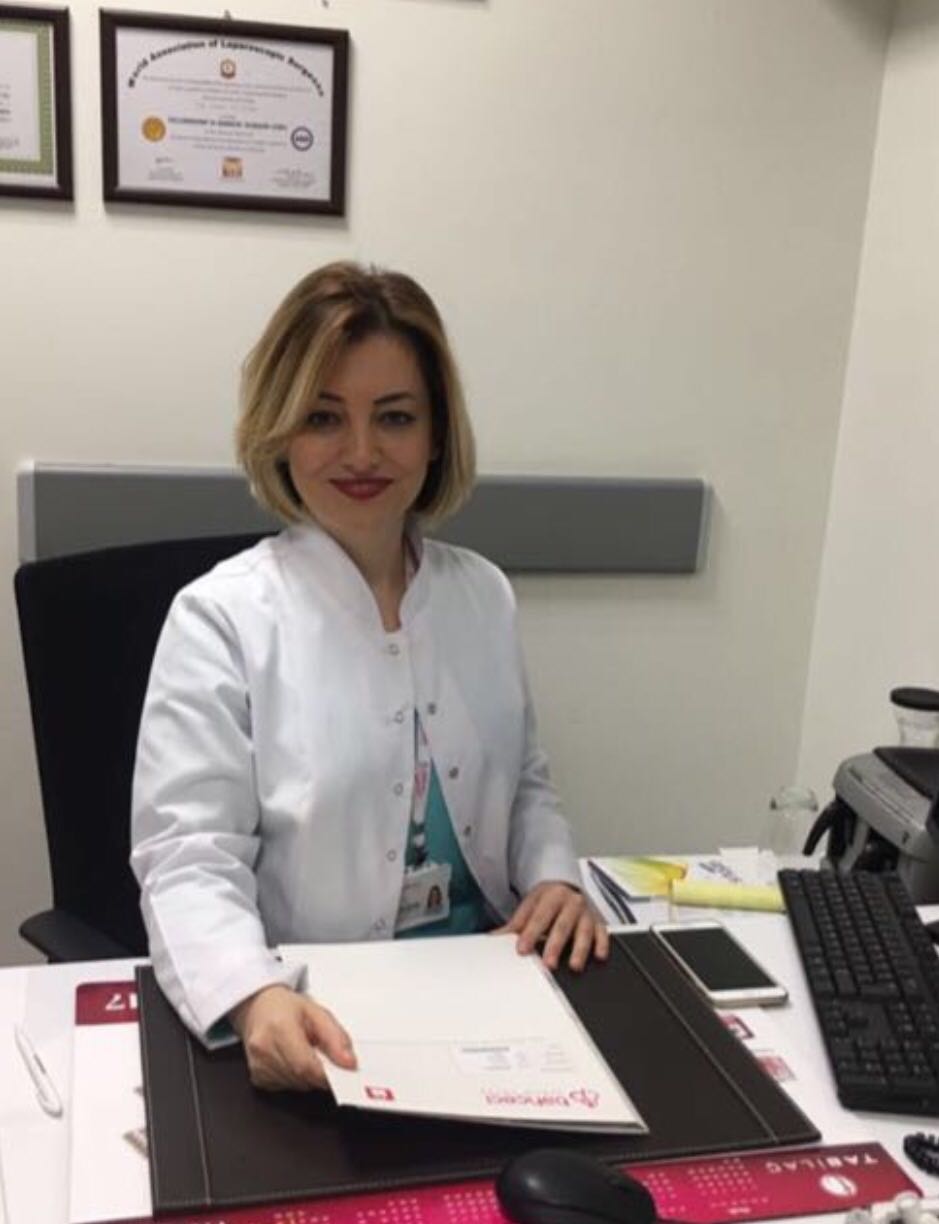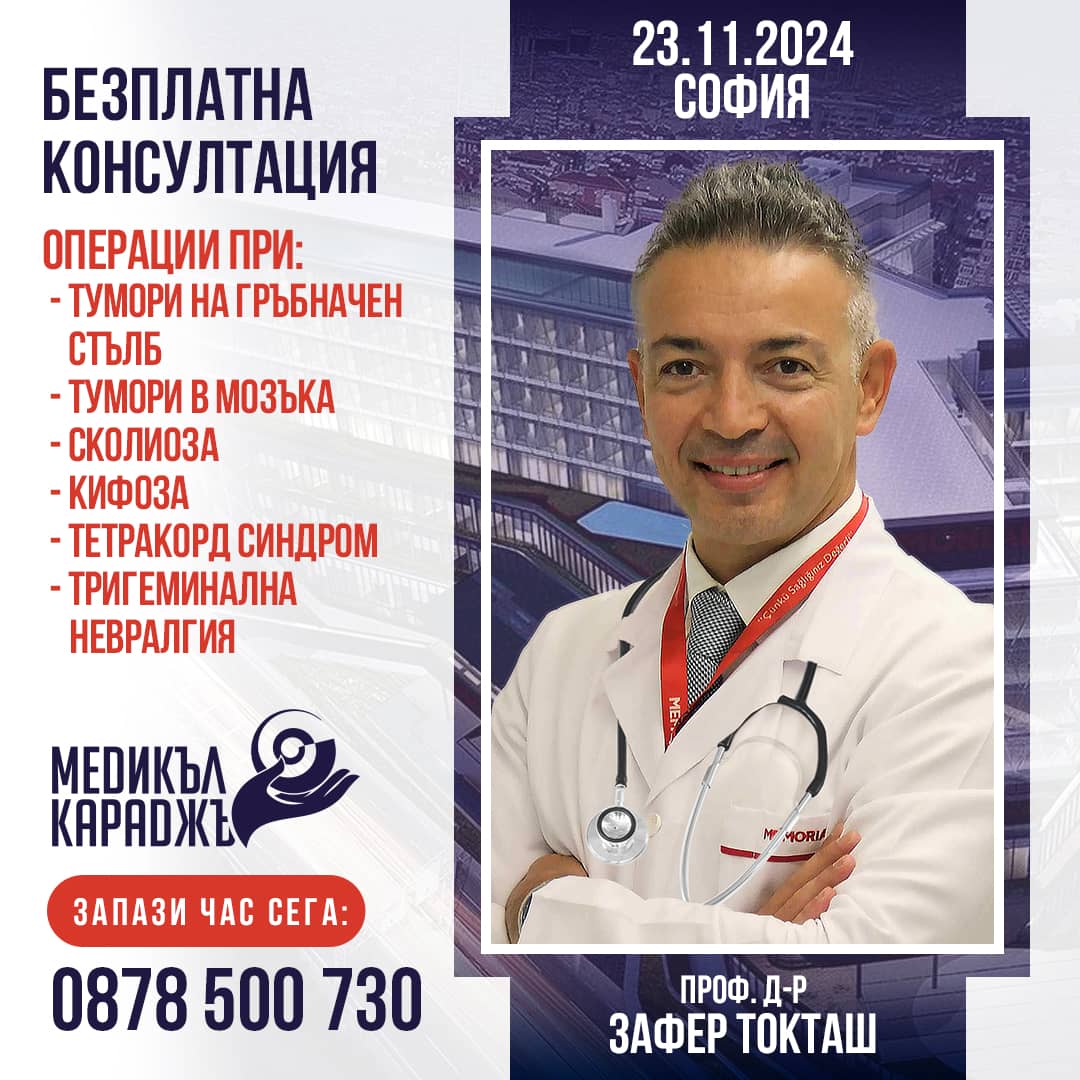Prof. Dr. Ebru Öztürk, who is part of the team of the Bahçeji Health Group and a leading specialist in the field of reproductive medicine, will consult for free couples with problem pregnancy in Bulgaria in February. In vitro clinics of the Bahçeji chain are known for their high success rate in in vitro procedures and for always being among the first to introduce innovative techniques in this field. Assoc. Öztürk arrives at the invitation of the Health Information Center "Medical Karaj", within the framework of their initiative to provide Bulgarian patients with access to the most advanced methods in medicine, partnering with some of the best medical institutions and specialists from around the world in each medical field.
Assoc. Prof. Dr. Ebru Öztürk is an internationally experienced and recognized specialist with over 100 scientific publications in Turkey and abroad. He is currently working in Bahçeji Health Group, which unites 10 clinics in 7 countries and was founded by one of the pioneers of in vitro fertilization in Turkey, Prof. Dr. Mustafa Bahçeji. Each of the clinics has been successful in reproductive procedures above the European average, achieving impressive results even in severe cases of infertility.
Modern methods in reproductive medicine allow for increasingly higher success rates even in couples who until recently were thought to have no chance of having a baby. Genetic screening, complex chromosome screening, the measurement of endometrial receptivity ERA and new solutions to increase the probability of pregnancy (MicroFilter-Fertile Ultimate, MitoScore and slow-motion imaging) contribute to this.
At Bahçeci, the Mitoskor test for in vitro fertilization was introduced for the first time in Turkey, which allows to select the embryo with the highest chance of implantation and thus significantly increases the chance of getting pregnant. The precise selection of the embryo during the transfer also helps to reduce cases of multiple pregnancies, which are not uncommon in in vitro procedures. The test is done at the same time as the genetic screening.
Another technique to increase the success rate is the so-called delayed embryo transfer. In contrast to a "fresh" transfer, where the most suitable embryos are implanted the same month and the rest are frozen for the next cycle in case of failure, in a delayed embryo transfer all available embryos are frozen and the transfer takes place after one or several months. This allows the natural environment in the uterus and the woman's body, which may have been disturbed by taking hormonal preparations to stimulate the ovaries, to be restored. A growing number of scientific studies are proving that this approach leads to more successful results and fewer complications, and in many cases is preferable to standard methods.
With these and other techniques, chosen according to the specifics of the case, Bahçeji was able to achieve a success rate of 56.1% in reproductive procedures with own eggs after the first attempt, which increased to 89.5% after the third attempt.
Even more impressive is the success rate of 97,82% after the third cycle of treatment with a donated egg or embryo, which is achieved at the British Cypress clinic of the Bahçeji chain. Pregnancy with donor material may be the only option for families where the woman is not producing eggs due to illness, chemotherapy or early menopause, or the man has low or absent sperm production. At British Cypress, in vitro procedures with donor materials are performed in compliance with all global standards, donors are reliable and anonymous, and the clinic even offers a full refund if no pregnancy occurs after the third attempt.
The more than 400 specialists working at Bahçeji like to say that they are part of the largest family in Turkey with 30,000 babies, where a new life is born every 2 and a half hours.
Now couples from Bulgaria who are interested in in vitro fertilization procedures can have a free consultation with Dr. Ebru Öztürk on 17 and 18 February by calling the following numbers in advance "Medical Karaj"0895 770 869 or 0879 977 401.







